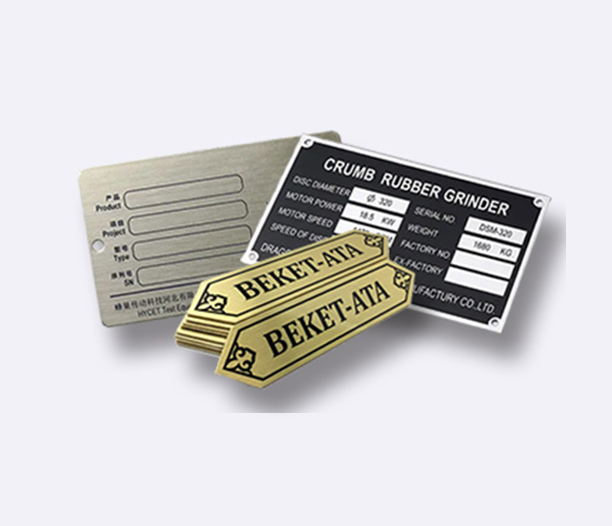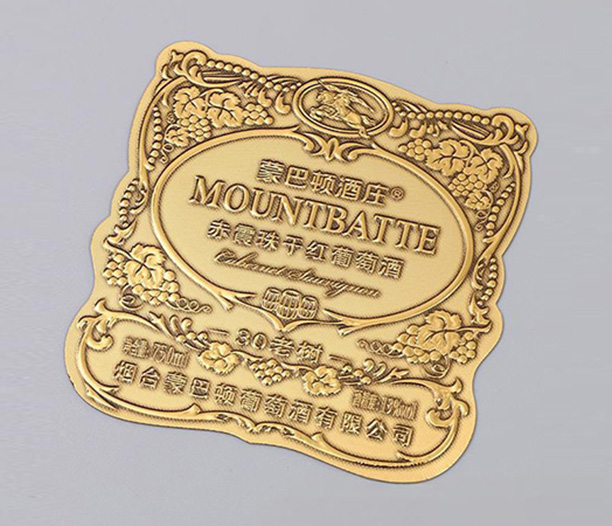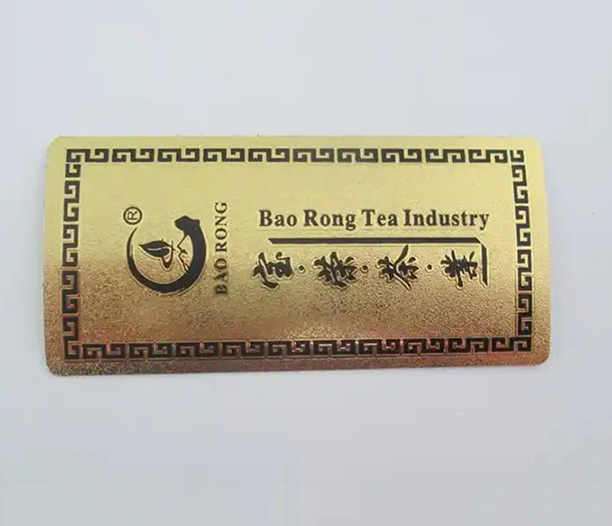If you’ve ever owned a car, worked in a factory, or even used a high-end appliance, you’ve likely encountered aluminum tags. These small but mighty metal labels are everywhere, quietly playing critical roles in industries ranging from aerospace to fashion. But what exactly makes aluminum tags so versatile, and why do engineers and designers swear by them? In this guide, we’ll explore the top uses, benefits, and innovations behind these unassuming workhorses of identification and branding.
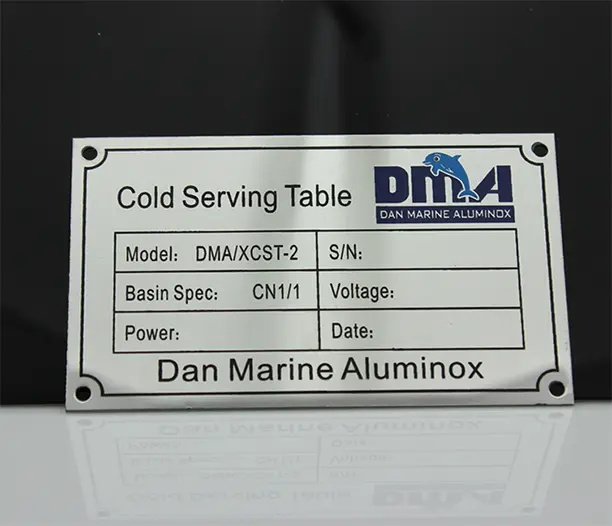
Why Aluminum? The Secret Behind the Metal’s Popularity
Aluminum tags aren’t just random metal scraps—they’re precision-engineered tools. Here’s why aluminum dominates the tagging world:
- Lightweight: 60% lighter than steel, perfect for portable devices.
- Durable: Resists rust, chemicals, and UV damage (especially when anodized).
- Eco-Friendly: 100% recyclable, with a lower carbon footprint than plastic.
- Customizable: Easy to stamp, engrave, print, or emboss.
But let’s get specific—where do these properties shine brightest?
Top 10 Uses of Aluminum Tags
1. Industrial Equipment Identification
In factories, aluminum tags act as permanent IDs for machinery. They display:
- Serial numbers for tracking maintenance histories.
- Safety warnings (e.g., “High Voltage” or “Hot Surface”).
- Compliance marks (CE, UL, ISO certifications).
Why Aluminum? Survives oil spills, heat, and daily wear-and-tear.
2. Aerospace and Defense Tracking
From jet engines to missile systems, aluminum tags endure extreme conditions:
- High-altitude temperature swings (-60°F to 300°F).
- Vibration from supersonic speeds.
- Corrosive fuels and hydraulic fluids.
Many include QR codes linked to digital maintenance logs.
3. Automotive and EV Components
Under your hood, aluminum tags label:
- VIN (Vehicle Identification Numbers) for registration and recalls.
- Battery specifications in electric vehicles.
- Tire pressure ratings and load capacities.
Luxury brands like BMW also use etched aluminum tags for emblem badges.
4. Medical Device Compliance
Hospitals rely on aluminum tags for:
- Sterilization tracking (withstands autoclaves at 270°F).
- FDA-compliant labels with lot numbers and expiry dates.
- Implantable device IDs (e.g., pacemakers).
Bonus: Antimicrobial coatings prevent bacterial growth.
5. Military and Defense Asset Management
The U.S. military uses aluminum tags to track:
- Weapons systems (serialized for accountability).
- Field gear (radios, night-vision goggles).
- Vehicle parts (tanks, helicopters).
Etched tags survive sand, mud, and combat conditions.
6. Marine and Offshore Applications
Saltwater is brutal, but aluminum tags with marine-grade coatings thrive on:
- Ship engines and propellers.
- Oil rig components.
- Submersible equipment.
7. Consumer Electronics Branding
Your gadgets likely feature aluminum tags for:
- Brand logos (Apple’s MacBook engravings).
- Regulatory info (FCC IDs, recycling symbols).
- Warranty seals to deter tampering.
Anodized finishes resist scratches from daily use.
8. Construction and Architectural Signage
In buildings, aluminum tags serve as:
- Fire safety labels (exit routes, extinguisher guides).
- Elevator inspection certificates.
- Custom plaques for donors or room numbers.
Powder-coated options withstand decades outdoors.
9. Retail and Luxury Product Tagging
High-end brands use aluminum tags to elevate products:
- Designer handbags (e.g., Louis Vuitton’s metal authenticity tags).
- Watches (serial numbers engraved on casebacks).
- Wine bottles (vintage year markers).
Brushed or polished finishes scream “premium.”
10. Renewable Energy Systems
Solar farms and wind turbines depend on aluminum tags for:
- Solar panel specs (wattage, installation dates).
- Battery array IDs in storage systems.
- Maintenance QR codes linked to digital manuals.
Aluminum Tags vs. Other Materials: The Showdown
Aluminum vs. Stainless Steel Tags
- Aluminum Wins: Lighter, cheaper, and better for intricate designs.
- Steel Wins: Stronger for extreme loads (e.g., mining equipment).
Aluminum vs. Plastic Tags
- Aluminum Wins: No cracking in heat, eco-friendly, and tamper-proof.
- Plastic Wins: Lower cost for disposable labels (e.g., event wristbands).
Aluminum vs. Brass Tags
- Aluminum Wins: Doesn’t tarnish, budget-friendly, and lighter.
- Brass Wins: Classic aesthetic for decorative plaques.
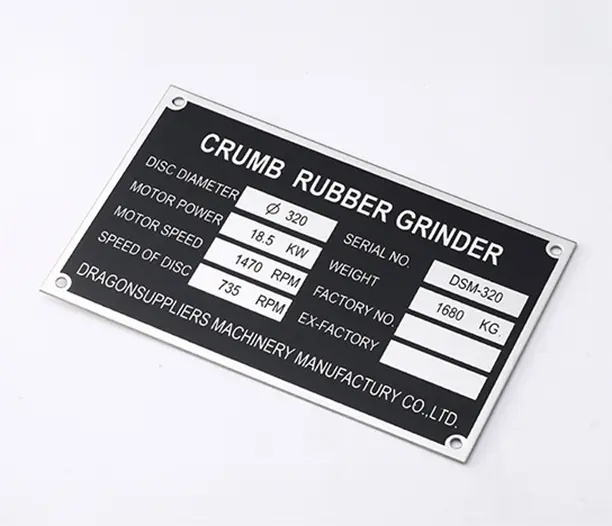
How Aluminum Tags Are Made: Customization Options
- Stamping: Pressing letters/numbers into the metal (ideal for serials).
- Laser Engraving: Precision etching for barcodes or tiny text.
- Screen Printing: Adding logos or color-coded warnings.
- Embossing/Debossing: 3D text for tactile labels.
- Anodizing: Electrochemical coloring (gold, black, blue) for durability.
Case Study: How Aluminum Tags Saved an Auto Manufacturer $200k/Year
- Problem: A car plant’s vinyl labels faded, causing mislabeled parts and assembly errors.
- Solution: They switched to laser-engraved aluminum tags with QR codes.
- Result: Reduced rework by 45% and saved $200k annually in relabeling costs.
Sustainability: The Green Advantage of Aluminum Tags
- Recyclability: Aluminum can be melted and reused infinitely.
- Longevity: Outlasts plastic by decades, reducing waste.
- Low Energy Production: Requires 95% less energy to recycle than to mine new aluminum.
Future Trends in Aluminum Tag Technology
- NFC-Enabled Tags: Tap-to-read data for inventory tracking via smartphones.
- Thinner, Stronger Alloys: Tags as slim as 0.2mm for wearable tech.
- Self-Healing Coatings: Surfaces that repair minor scratches automatically.
What Are Aluminum Tags Used For?
From tracking fighter jets to authenticating luxury handbags, aluminum tags are the unsung heroes of modern industry. Their unique blend of strength, versatility, and eco-friendliness makes them indispensable in a world demanding smarter, greener solutions. Whether you’re labeling a spaceship part or a craft beer keg, aluminum tags deliver where others fail—no wonder they’re stuck around for over a century.



